Advocates Push For Minimum Wage Hike For Restaurant Workers, Owners Object
Tipped workers have reached a tipping point at their workplace over wage thefts, sexual harassment, and discrimination, according to one labor advocacy group, which was joined by politicians pushing for an increased minimum wage for restaurant workers. Restaurant owners say this will severely increase costs and force them to hire fewer waiters and waitresses.
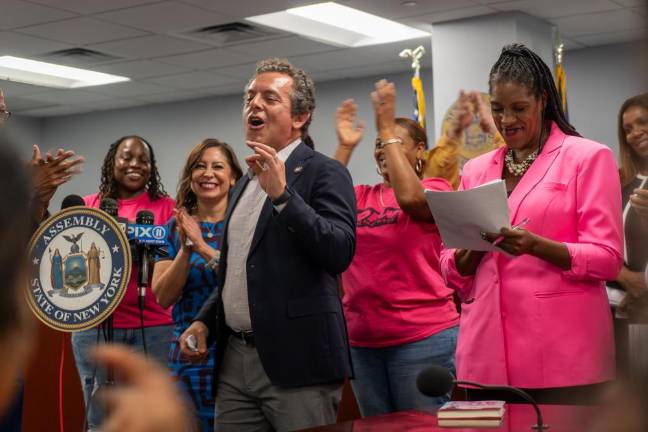
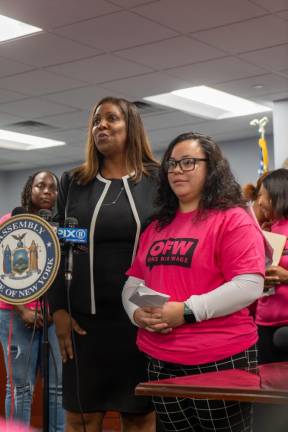
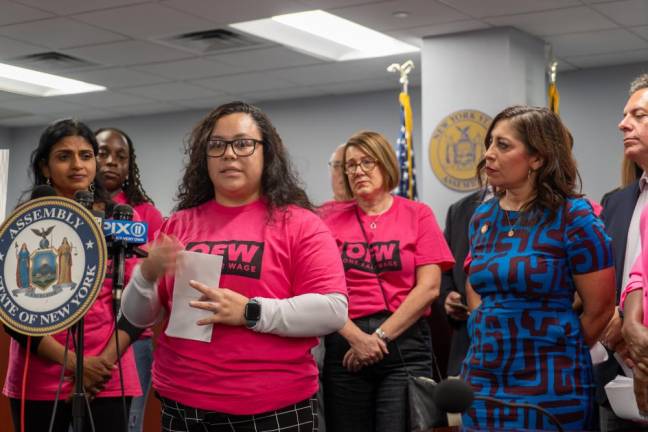
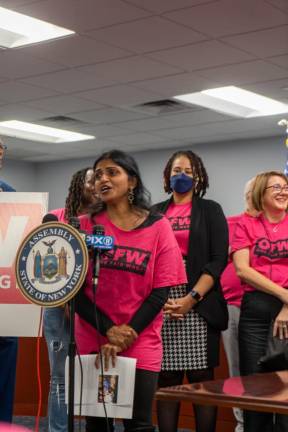
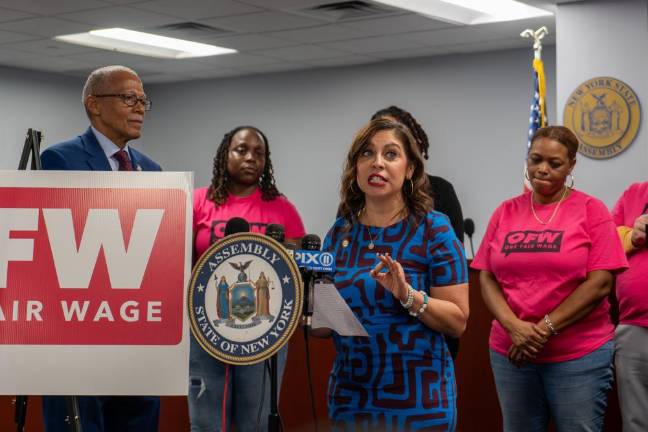
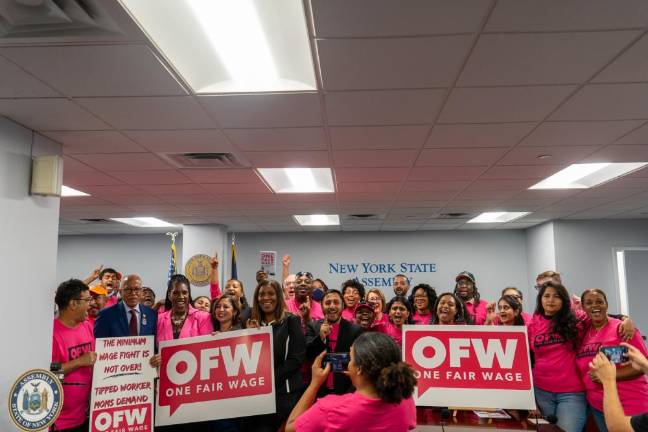
A labor advocacy group, in a bombshell new report, claims restaurant workers face “alarming levels of wage theft, diminished tips, heightened harassment, and inadequate earnings” in the post-pandemic world.
The group One Fair Wage, in an Oct. 27 press conference, presented a report titled, Last Major Metropolis, after surveying over 2100 people between June 2022 and August 2023, which says New York lags behind other major metropolitan areas in restaurant wages.
Several lawmakers, advocates, and restaurant workers also attended the event in lower Manhattan at the New York State Assembly office, pushing for a new minimum wage for tipped workers and calling for support for the (A1710/S5567) bill, introduced by State Senator Robert Jackson and co-sponsored by Chelsea Assembly member Tony Simone along with Assembly members Jessica González-Rojas, and several others.
The National Restaurant Association, an owners’ group, disagrees, citing rising costs for diners and owners and reduced earnings for servers if the tip credit system that allows owners to pay less than the state mandated minimum wage of $15/hr is abolished.
Assembly member Simons spoke of the time in his younger days when he was a waiter in a restaurant, calling it “one of the hardest jobs you can have.” He also emphasized that the wage gap that allows restaurants to pay $5 less than the state minimum, which is $15, because the servers will presumably receive tips to make up the difference was “an issue of racial justice, worker justice, and economic justice. Why wouldn’t you pay these workers a living wage so they can feed their families?”
State Attorney General Leticia James also urged others to support the bill. “It’s a damn shame that New York City is one of the few major American cities where tip workers are paid less than the minimum wage.”
“People will look at your physique or your face before deciding if they could give you a tip or not,” Berniece Garcia, a Queens-based server, said at the press conference. In the past, Garcia has worked under several “bad bosses,” some of whom denied her even the state minimum for restaurant servers and others who made suggestive comments about the way she dressed. OFW claims Garcia’s experience mirrors that of thousands of other workers in New York.
At Garcia’s previous job, her employer paid her $7 an hour, $3 less than the state restaurant server minimum wage, which is $10 for tipped workers. When she brought this to her manager’s attention, expressing that what he was doing was illegal, he shrugged and said, “You’re illegal.”
The OFW report claims that 57 percent of New York servers have experienced decreased tips due to low sales since they returned to work post-pandemic. It also highlights the average yearly incomes of servers, stating that most make “just $18,298 a year.” which is “almost $13,000 less than what a full-time worker would make at $15 per hour.”
“The restaurant industry has been one of the largest and fastest-growing private sector employers in the state of New York and nationally for decades,” said Saru Jayaraman, the president of One Fair Wage and the director of the Food Labor Research Center at UC Berkeley. “but it has been the absolute lowest-paying employer in New York and nationally for generations dating all the way back to emancipation.”
The National Restaurant Association (NRA), though, feels otherwise. “We advocate for the tip credit because it allows operators to hire more tipped servers, servers like it because of the high earning potential, and it keeps costs down for diners,” Vanessa Sink, the senior director of media relations at the NRA, told Straus News over an email interview.
Jayaraman counters, “Seven states have gotten rid of [the tip credit system] many decades ago: California, Oregon, Washington, Nevada, Minnesota, Montana, and Alaska all have one wage, a full minimum wage with tips on top.”
In their report, the OFW also outlined how when the pandemic hit, restaurant workers in New York were amongst the worst affected. With the drop in sales and fewer customers dining in person, several tipped workers, especially women and people of color—who form a large chunk of the restaurant worker population—no longer received tips to make their full minimum wage.
In addition to employment losses, several workers faced the additional hurdle of not having access to unemployment insurance. Because many were only paid below the minimum wage, they were told their wages were too low and that tips did not count towards the calculation. Jayaraman stated that 70 percent of all New York server workers and 80 percent of black women in the serving industry said that they were denied unemployment insurance.
“The people who literally put food on our tables at restaurants cannot put food on their own tables,” said Assembly Member Jessica González-Rojas.
Three weeks before the conference, Chicago became the latest city to abolish the system where tips were used to reduce a server’s minimum wage.
“It is disturbing that we are the last major metropolis that affirms this. That New York still allows specific industries, including restaurant workers, who are predominantly women of color and single moms, to pay a sub-minimum wage is unconscionable,” Gonzales-Rojas said.
The Restaurant Divide
The NRA claims that a full minimum wage would further decimate an industry that has not recovered fully from the pandemic losses. “Restaurant operators who are using the tip credit have built their business plan based on the wage model and should continue to have the option,” Sink told Strauss News in an email interview
But Attorney General James counters, “Every year, New York businesses cheat more than two million workers, a third of whom are earning a minimum wage. We need to stop employers from filling their pockets at the expense of individuals who earn minimum wage.”